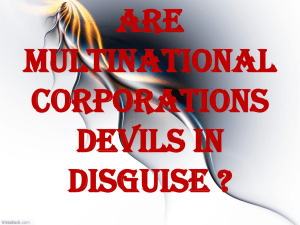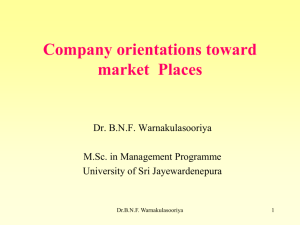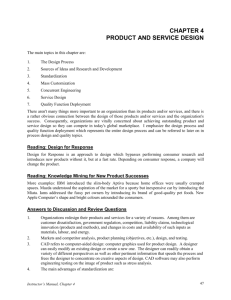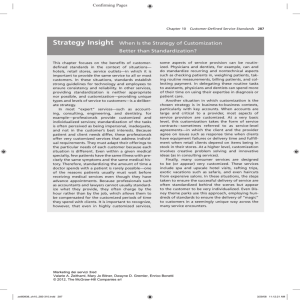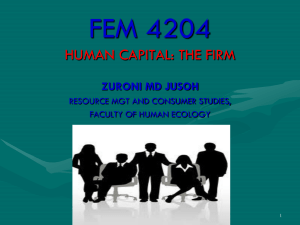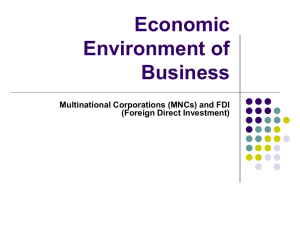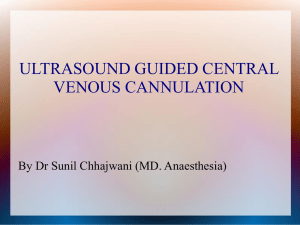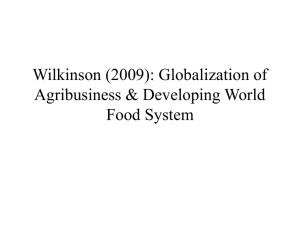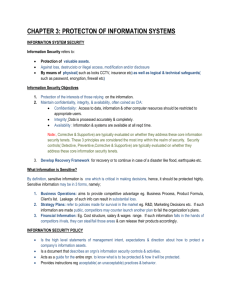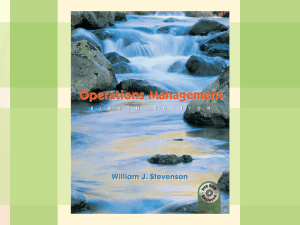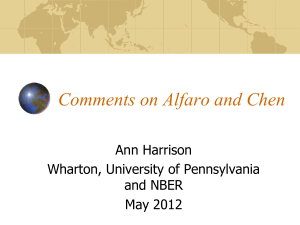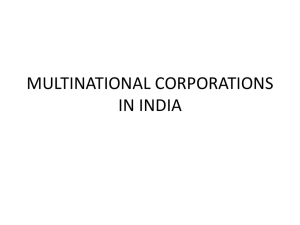Global Manager
advertisement
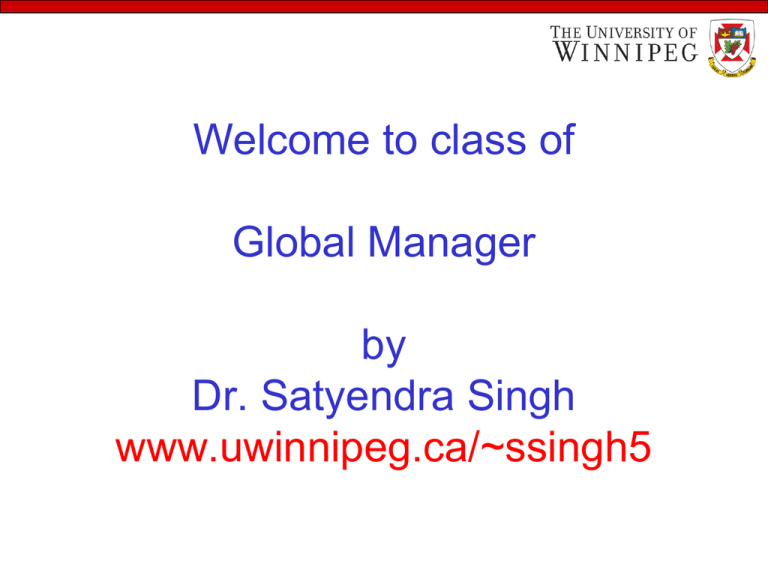
Welcome to class of Global Manager by Dr. Satyendra Singh www.uwinnipeg.ca/~ssingh5 Objective • To develop Global Manager – Understand culture – Function in new environment – Create structure – Implement strategy –… • No premature return from long-term assignment from abroad – Costs of failure can be very high • Diversified MNCs have special issues Diversified MNC Managers Face Substantive Issues • Integrate large intl. acquisitions • Build worldwide logistic capability - 5Cs – Character, cost, coverage, control, continuity • Develop country-specific strategies – political and economic environment • Form beneficial collaborative arrangements worldwide • Balance pressures for global integration and local demands • Need certain set of traits and skills Global Manager Traits: Now vs. Future Skills of Global Manager • Global mindset – Beyond learning culture and language • Ability to – 1 develop and use global strategic skills – 2 manage change and transition – 3 manage cultural diversity – 4 design and function in flexible orgn structure – 5 work with others and in team – 6 communicate – 7 learn and transfer knowledge in an orgn. 1 Global Strategic Skills • No parochial views • Flexible – required in different culture • Good knowledge of – International relations, Foreign affairs – Global financial markets – Exchange rate movements (interest, inflation…) • Standardization vs. customization • Local yet should fit global strategy – Detergent: liquid vs. solid (Europe) – Retailing: family/value pack vs. sachets (EM) – McDonald (beer), KFC (rice) 2 Change and Transition • Change – Unstable environment – ongoing challenge – Switch b/w standardization «» customization – Needs reorganization of resources • Human, technology, marketing, distribution… • Managers must agree with the strategy – Otherwise poorly implemented – Country Mgr feel lost control Resignations • Moved from customization standardization (HO) • Transition through Alliances or IJV – Alliances/IJV more difficult to change than wholly-owned subsidiary • Requires multiple trusting relationship 3 Cultural Diversity - EPRG • SRC: Self Reliance Criteria – one’s own cultural values, experiences, and knowledge as a basis for decisions • EU ↑ multicultural than US Canada – ↓ multicultural may be ↑ conflicts • HO culture sh’d not dominate entire orgn culture • Ethnocentric: HCN, reward, HO superiority, ↑ control, ↓ risky venture – export, sales affiliates • Polycentric: Recognize diff, have confidence, local • Regiocentric: Recognize regional differences • Goecentric: Optimize resources, best practices, superiority is not based on nationality. • Performance: Geo>Regio/Poly>Ethnocentric 4 Flexible Orgn: Design and Function • Learn, responsive and efficient • Help people do more effectively – Develop strategic thinking and action – Open communication of plans – Alignment bw HO and BO re. decision-making – High tolerance for ambiguity • Coordinate within and bw LOB – Financial, HR, marketing, manufacturing… • Identify SCA and prioritize across different locations – Accommodate the new structure and process 5 Working with People, Team • Due to specialization of people, complexity • What is team – IJV partners, suppliers, customers… • Becomes clear county requirement – Accounting • Economic reality vs. just standard accounting • Accounting vs. legal requirements are met • So, team develops intl. auditing standards – Operations relationship oriented… • Participation in global team global outlook global manager • Ex- International Journal production 6 Communications… • Diverse Group – Multilingual – Cross-cultural awareness • • • • Particularly important in advertisements Lawsuit launched against global media by local media Global media wish to retain advertising revenue Local media wish to control advertising content – Sensitivity to colleagues, customers… • It leads to forming trust • Becomes corporate Culture • Shared Global value system • Global communications – effectiveness? – Ex. Kellogg Cereals, perfumes… 6 Communications… 6 Communications 7 Knowledge Transfer • Globally competent highly curious – Experiment, take risks – calculated vs blind • MNCs use the knowledge gained by Mgrs and transfer effectively in another country – Corporate management responsibility • Not all MNCs do that – Particularly, if mgr re-enter home country Ex: a visitor may learn > local, then wrote a book!
